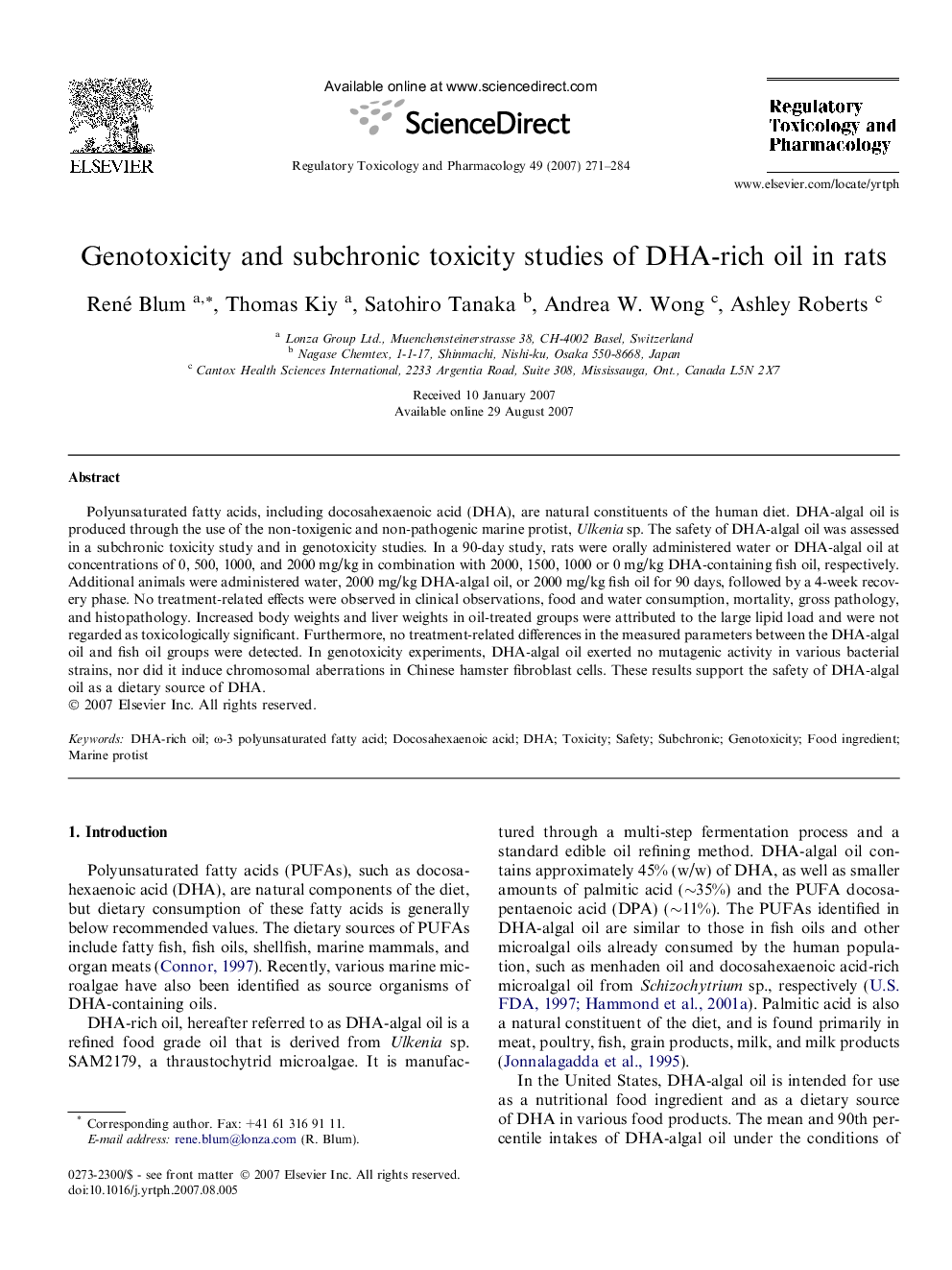| Article ID | Journal | Published Year | Pages | File Type |
|---|---|---|---|---|
| 2592757 | Regulatory Toxicology and Pharmacology | 2007 | 14 Pages |
Polyunsaturated fatty acids, including docosahexaenoic acid (DHA), are natural constituents of the human diet. DHA-algal oil is produced through the use of the non-toxigenic and non-pathogenic marine protist, Ulkenia sp. The safety of DHA-algal oil was assessed in a subchronic toxicity study and in genotoxicity studies. In a 90-day study, rats were orally administered water or DHA-algal oil at concentrations of 0, 500, 1000, and 2000 mg/kg in combination with 2000, 1500, 1000 or 0 mg/kg DHA-containing fish oil, respectively. Additional animals were administered water, 2000 mg/kg DHA-algal oil, or 2000 mg/kg fish oil for 90 days, followed by a 4-week recovery phase. No treatment-related effects were observed in clinical observations, food and water consumption, mortality, gross pathology, and histopathology. Increased body weights and liver weights in oil-treated groups were attributed to the large lipid load and were not regarded as toxicologically significant. Furthermore, no treatment-related differences in the measured parameters between the DHA-algal oil and fish oil groups were detected. In genotoxicity experiments, DHA-algal oil exerted no mutagenic activity in various bacterial strains, nor did it induce chromosomal aberrations in Chinese hamster fibroblast cells. These results support the safety of DHA-algal oil as a dietary source of DHA.
